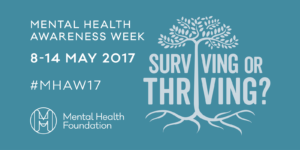Accept who you are
 Some of us make people laugh, some are good at maths, others cook fantastic meals. Some of us share our lifestyle with the people who live close to us, others live very differently.
Some of us make people laugh, some are good at maths, others cook fantastic meals. Some of us share our lifestyle with the people who live close to us, others live very differently.
We’re all different. It’s much healthier to accept that you’re unique than to wish you were more like someone else.
Feeling good about yourself boosts your confidence to learn new skills, visit new places and make new friends.
Good self-esteem helps you cope when life takes a difficult turn.
Be proud of who you are. Recognise and accept what you are not good at, but focus on what you can do well.
Work out if there’s anything about yourself that you still want to change. Are your expectations realistic? If they are, work towards the change in small steps.
Mental Health Foundation
www.mentalhealth.org.uk/your-mental-health/looking-after-your-mental-health/accept-who-you-are
#MHAW17
www.mentalhealth.org.uk/campaigns/mental-health-awareness-week
Mental health help and support services
If you’re experiencing mental health problems or need urgent support, there are lots of places you can go to for help. https://southashford.org.uk/index.php/2017/02/02/time-to-talk/#support

